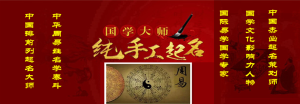Unit 1 How can Iget there ?
一、主要单词: museum博物馆 bookstore书店 cinema电影院 turn 转弯 hospital医院 left向左 post office邮局 science科学 right向右 straight笔直地 crossing十字路口
二、习惯语搭配: post office邮局 science museum科学博物馆 pet hospital宠物医院 Italian restaurant意大利餐馆 Beihai Park北海公园 Palace Museum故宫博物院 go straight直走 turnright/left右/左转 next to挨着 in front of…在…前面 near the park在公园附近 on Dongfang Street在东方大街上
三、惯用表达式: Excuse me 打扰一下 Follow me, please!请跟着我!
四、公式化句型: 1、问路的句型及其答语: 问句:Where isthe + 地点? ···在哪儿? 答语:It’s + 表示地点的词语。 它···。 next to the bookstore, near the hospital/post office, over there, on DongfangStreet, in front of the school… 2、询问怎么到某地的句型及其答语: 问句:How can +主语 + get (to)+地点? ···怎么到···? 同义句型: Can you tell me the way to +地点? Where is + 地点? Which is the way to +地点? 答语:Turn +方向+表示地点的介词短语。···转。 at the cinema at the corner near the post office…
五、例句: Where is the cinema, please? 请问电影院在哪里? It’s next to the hospital. 它与医院相邻。 Turn left at the cinema, then go straight. It’s on the left. 在电影院向左转,然后直行。它在左边。 Turn left at the bank。 在银行左转。
Unit 2 Ways to go to school
一、主要单词: by乘 bus公共汽车 on foot步行 plane飞机 taxi出租车 ship(大)船 subway地铁 train火车 slow慢的 stop停下 always 总是,一直 usually 通常 often经常 sometimes 有时候 never 从来不
二、习惯语搭配: by bike/bus/plane/subway/train/ship/taxi/ferry 骑自行车/乘公共汽车/飞机/地铁/火车/船/出租汽车/渡轮 take the No.57 bus乘57路公共汽车 on foot步行 slow down慢下来 pay attention to注意 trafficlights 交通信号灯 look right向右看 cross the road横穿马路 get off下车 at home在家 traffic rules交通规则 get to到达 get on 上车 be far from…表示离某地远
三、惯用表达式: Wait!等一等! Hooray太好了! I see. 我明白了。 Go at a green light 绿灯行 Stop at a red light 红灯停 Wait at a yellow light 黄灯等
四、公式化句型: 1、如何询问对方的出行方式: How do you come(to)+地点? 你(们)怎么来···的? 2、如何用must表示必须做某事: 某人+must+动词原形(+其它). ···必须···。 3、告诫别人不要做某事的句型: Don’t +动词原形(+其它). .不要/别···。
五、例句: How do you go to school? 你怎么去上学? Usually I go to school on foot. Sometimes I go by bus. 通常我步行去上学。有时候骑自行车去。 How can I get to Zhongshan Park ? 我怎么到达中山公园? You can go by the No. 15 bus. 你可以坐15路公共汽车去。 I am far from school now. 我现在离学校很远。 My home is not far from ourschool. My home is near our school. 我家离学校不远
Unit 3 My weekend plan
一、主要单词: tomorrow明天 film电影 supermarket超市 trip旅行 tonight在今晚 evening晚上/傍晚 next week下周 comic连环画杂志 dictionary词典 word单词 post card明信片 visit拜访
二、习惯搭配: take a trip去旅行 go for a picnic去野餐 go to the cinema去看电影 learn to swim学习游泳 visit my grandparents看望我(外)祖父母 get together 聚会 go to the supermarket去超市 go ice-skating去滑冰 make a snowman堆雪人 see a film看电影 make mooncakes做月饼 read a poem朗诵一首诗 this weekend这周末 Renmin Park人民公园 next week下周 this morning/afternoon/evening 今天上午/下午/晚上 next Wednesday下星期三
三、惯用表达式: What about you?你呢? Here they are!它们在这儿! Can I help you?我能帮助你吗? Sounds great!听起来很棒! Have a good time!玩得开心! You too.你也是
四、公式化句型: 1、询问对方打算做什么的句型及其答语: 问句:What areyou going to do +其它? 你/你们···打算做什么? next week tonight tomorrow this morning/afternoon/evening this weekend… 答语: I’m/We’re going to +动词(短语)原形+其它. 我/我们打算···。 see a film take a trip visit my grandparents watch TV… 2、询问对方打算去哪儿的句型及答语: 问句:Where areyou going(+将来时间)? 你/你们打算(···)去哪儿? 答语:I’m/We’regoing (to the)+地点. 我/我们打算去···。 3、询问对方打算何时去做某事的句型及答语: 问句:When areyou going to +动词(短语)原形? 你/你们打算什么时候···? 答语:I’m/We’regoing to +动词(短语)原形+将来时间. 我/我们打算···。
五、例句: What are you going to do on the weekend? 你周末打算做什么? I’m going to visit my grandparents this weekend? 这个周末我打算去看望我的外祖父母。 Where are you going this afternoon? 你今天下午打算去哪里? I’m going to the bookstore. 我打算去书店。 What are you going to buy? 你打算去买什么? I’m going to buy a comic book。 我打算去买一本漫画书。
六、主题写作:范文 Let’sHave a Nice Day! Today is Saturday.Tomorrow morning I’m going to the bookstore with myfriends.We are going to look for some good books.We all like reading books.Weare going to have lunch in a restaurant.I like chicken,beef andvegetables.After lunch,we are going to the Summer Palace by bus.We are going toplay near the Kunming Lake.Maybe we are going to row a boat on the lake.Thatwill be great!We are coming back at 5 in the afternoon.
Unit 4 I have a pen pal
一、主要单词: studies学习(第三人称单数形式) puzzle谜 hiking远足
二、习惯搭配: read stories读故事 do kungfu练功夫 fly kites放风筝 play the pipa弹琵琶 play sports进行体育活动 climb mountains爬山 listen to music听音乐 sing English songs唱英文歌 on a farm在一个农场里 live in…住在··· write an email to…给···写一封电子邮件 on the playground在运动场上
三、惯用表达式: Me too.我也是。 Really?真的吗? 四、公式化句型: 1、询问某人爱好的句型及其答语: 问句: What are sb.’s hobbies? ···有什么爱好? 答语:主语+like/likes+动词-ing形式(+其它). ···喜欢···。 Singing dancing reading stories playing football doing kungfu doing word puzzles going hiking watching TV drawing cartoons listening to music going fishing 2、由do/does引导的一般疑问句及其答语: 问句:Do/Does+主语+动词原形+其它? 答语:Yes,主语+do/does. /No,主语+don’t/doesn’t.
五、语法: 1、动词变为动名词的规则: 动词变为动名词,即是动词加ing。一般要遵循以下三条规则: (1)一般情况下,在动词的后面直接加ing。如: play—playing read—reading do—doing go—going (2)以不发音的字母e结尾的动词,要去掉不发音的字母e,再加ing。如: write—writing ride—riding make—making dance—dancing 以单元音加单辅音结尾的重读闭音节,要双写最后一个辅音字母,再加ing。 如:run—running swim—swimming put—putting sit—sitting 2、关于第三人称单数: 动词变为第三人称单数形式的规则: (1)在一个句子中,如果主语人称既不是你,也不是我,而是另外的一个人,这时的人称叫做第三人称单数。 (2)在第三人称单词的句子中,动词要使用第三人称单词形式。 (3)动词变为第三人称单数形式,要遵循以下规则: ①一般情况下,在动词的后面直接加s。如: read–reads make—makes write—writes ②以字母s, x, o , sh , ch结尾的动词,在词尾加es。如: do—does wash—washes teach—teaches go—goes pass—passes ③以y结尾的动词分为两个情况,以元音字母加y结尾的动词,在词尾直接加s。如:play—plays buy–buys 以辅音字母加y结尾的动词,要把y变为i,再加es.如:study–studies ④以f , fe结尾的名词,先把f,fe变为v,再加-es. ⑤特殊变化:have–has (4)在一个第三人称单数的句子中,只要句子中出现了does或者其否定形式doesn’t.该句子中的其他动词就要使用原形。 (5)第三人称单数的肯定句在变为否定句时,在动词的前面加doesn’t. 动词恢复原形。如:he lives in Beijing.—he doesn’t live in Beijing. (6) 第三人称单数的陈述句在变为一般疑问句时,用does开头,后面的动词也要变为原形。如:he lives in Beijing.—Does he live in Beijing? 3、注意几个单词的变化: hobby(复数形式)—hobbies have to(同义词)—must 六、反义词或对应词: get on(上车)—get off(下车) near(近的)—far(远的) fast(快的)—slow(慢的) because(因为)—why(为什么) same(相同的)—different(不同的) east(东)—west(西) north(北)—south(南) left(左)—right(右) get on (上车)—get off(下车) here(这里)—there(那里) 近义词: see you—goodbye sure—certainly—of course
七、主题写作:范文 Li Ying’s Hobbies Li Yinglikes English very much.She works hard at it.She reads English everymorning.She likes speaking English .She likes listening to the radio,too.Shewatches TV only on Saturday evening. Does shelike cooking Chinese food?No, she doesn’t.She likes doing word puzzles.Shedoesn’t like playing basketball.Her parents love her.All the teachers loveher,too.She says her hobbies make her happy.
Unit 5 What does he do?
一、重点单词: factory工厂 postman邮递 police officer警察 fisherman渔民 scientist科学家 pilot飞行员 coach教练 businessman商人;企业家 worker工人
二、习惯搭配: by car/bus/bike/plane/boat乘小汽车/公共汽车/自行车/飞机/船 go to work去上班 study hard 努力学习 stay healthy保持健康 go home 回家 lots of 许多 go to the camp去度假营 be good at…擅长···
三、惯用表达式: Cool!酷! What about you?你呢? That’s nice.那真好。 I see.我明白了。
四、公式化句型: 1、询问他人的职业的句型及其答语; 问句:What does+主语(第三人称单数)+do? ···是做什么的? 答语:He/She is a /an+职业名称. 他/她是一位···。 worker postman businessman fisherman scientist pilot coach policeofficer salesperson售货员 cleaner清洁工 teacher dancer舞蹈演员 doctor nurse护士 pianist钢琴家 dentist牙医 tailor裁缝 2、询问他人的工作地点的句型及其答语: 问句:Where does+主语(第三人称单数)+work?···在哪儿工作? 答语:He/She works+(表示地点的)介词短语. 他/她···工作。 at auniversity in a gym at sea on a boat at the zoo in a school in a bank在一家银行 in a car company在一家汽车公司 3、询问他人的上班方式的问句及其答语: 问句:How does +主语(第三人称单数)+go to work? ···怎么去上班? 答语:He/She goes to work+交通方式. 他/她···去上班。 bybike/bus/subway/plane/train/ship/ferry/…on foot
五、一些由动词变化而来的职业名词: teach—teacher clean—cleaner sing—singer dance—dancer drive—driver write—writer TV report—TV reporter act—actor act—actress art—artist engine—engineer
六、主题写作:范文 ILove My Family Here is a photo of my family.There are four people in my family.They aremy father,my mother, my brother and me. My father is a doctor.He works in a hospital.He goes to work bysubway.My mother is a teacher.She works in a school near my home.She goes towork by bike.Look, the tall boy is my brother.He is older than me.He is apilot.He’s in Beijing now.He goes there by plane.I am a student now. I love my family.
Unit 6 How do you feel ?
一、主要单词: angry生气的 afraid害怕 worried担心的;发愁的 happy高兴的 see a doctor看病 more更多的 wear穿 deep深的 breath呼吸(名词) count数数(动词) sad难过的
二、习惯搭配: feel angry/ill/happy/sad感觉生气/不舒服/高兴/难过 be afraid of…害怕··· be angry with…与···生气 take a deep breath深深吸一口气 count to ten 数到十 see a doctor看病 do more exercise做更多的运动 wear warm clothes穿暖和的衣服 chase the mice追赶老鼠 drink some drinks喝一些饮料 have some popcorn吃一些爆米花
三、惯用表达式: Here you are.给你。 Wait for me.等我一下。 Yum!太美味了!
四、公式化句型: 1、描述某人/某物害怕什么的句型: 主语+be动词+afraid of +其他. ···害怕···。 2、描述某人/某物与什么生气的句型: 主语+be动词+angry with+其他. ···与···生气。 3、询问某人怎么了的句型及其答语: 问句:What’s wrong? What’s the matter(with you)? 怎么了? 答语:某人+所处的状况。 4、建议某人应该做某事的句型 某人+should +动词(短语)原形+其他. ···应该···。 take a deepbreath count to ten see a doctor do more exercise wear warm clothes…
五、做“对句子划线部分提问”试题时,一般应该遵循三个步骤: (1). 确定与句子划线部分相应的特殊疑问词,并且特殊疑问词代替相应的划线部分。 (2). 把特殊疑问词代替划线部分后的句子变成一般疑问句。 (3). 最后再把特殊疑问词提到句首。 以上三个基本步骤可以用三个字来概括,即:定,问,提。 例如: This is a book ? ①This is what. ②Is this what ? ③What is this ? 注意:句①②只是一种变化过程,不必写入试题中。句③才是试题所要求的形式和结果,必须写到试题上。以上三个步骤是对句子划线部分提问最基本的过程。
六、主题写作:范文 WhatShould You Do? When you fell sad or worried,what should you do ? Let me tell you.Firstyou should take a deep breath .Then you should listen to some music.Next youwill be relaxed.You won’t be so sad or worried.When you are afraid,what shouldyou do? It’s easy.You should ask your friends for help.If you have friends withyou,you won’t feel afraid.Try to be happy every day.
英语疑问词what,how,who,why,where,when的用法.
一、what 什么 用来问是什么,叫什么,做什么等 1. What’s your name? 你叫什么名字? 2.What is in your box? 你的盒子里是什么? 3. What’s your father?=What does your father do? 你爸爸是干什么的? What time 什么时间 用来问时间 What time is it? 几点了? What colour 什么颜色 用来问颜色 Whatcolour is your bag? 你的书包是什么颜色? 三)What about 怎么样 用来征求意见或询问感受等,大多用于承接上面的同样问题。 1.What bout this pair of shoes? 这双鞋子怎么样? 2.What about you? 你呢? 3.What about your dad? 你爸爸呢? 四)What day 星期几 用来问星期几 What day is it today/tomorrow? 今天/明天星期几? 五)What date 什么日期 问具体的日期 1.What’s the date today? 今天是几号? 2. What date is tomorrow? 明天是几号? 六)What …for 为何目的 用来问目的,在一定情况下可以与why互换 What did you buy that for?=Whydid you buy that? 你为什么要买那个?
二、when 什么时候 用来问时间 When do you get up?你什么时候起床?
三、where 哪里 用来问地点 1. Where is my ruler? 我的尺子在哪里?2. Where are you going to ? 你打算去哪里? 3.Where are you from? =Wheredo you come from? 你是哪里人?
四、which 哪一个 用来问具体的哪一个 1. Which season do you like best? 你最喜欢哪个季节? 2.Which class are you in?你在哪一个班? 3.Which one is my pen?哪一支是我的钢笔?
五、Who 谁 用来问人物是谁 1.Who is that boy?那个男孩是谁? 2. Who are you going to with? 你打算和谁一起去? 3. Who is that pretty lady?那个漂亮的女士是谁?
六、whose 谁的 用来问东西是谁的 1. Whose bag is this? 这是谁的包? 2.Whose bike is yellow? 谁的自行车是黄色的?
七、 why 为什么 用来问原因 1.Why do you like spring? 你为什么喜欢春天? 2. Why did you go there? 你为什么去那里?
八、 how 怎么样 用来询问身体等状况 1. How are you? 你好吗? 2. How is your mother? 你妈妈好吗? 一)How old 几岁 用来问年龄 How old are you? 你几岁了? 二)How long 多长 用来问长度 How long are your legs? 你的腿多长? 三)How big 多大 用来问物体的大小 How big is your bedroom? 你的卧室多大? 四)How tall 多高 用来问高度 How tall is your brother? 你弟弟有多高? 五)How heavy 多重 用来问重量 How heavy are you? 你有多重? 六) How far 多远 用来问路程 2 How far is it from here? 从这儿去有多远? 七)How many 多少 用来问数量 How many apples do you have? 你有多少苹果? 八)How much 多少钱 用来问价格 how much is this dress? 这个连衣裙多少钱? 九)How about 怎么样 用来征求意见或询问感受等,大多用于承接上面的同样问题,用法与what about相同 1. How about you? 你呢? 2. How about that shirt? 那件衬衣怎么样?
如若转载,请注明出处:https://www.bbqim8.com/archives/22867



